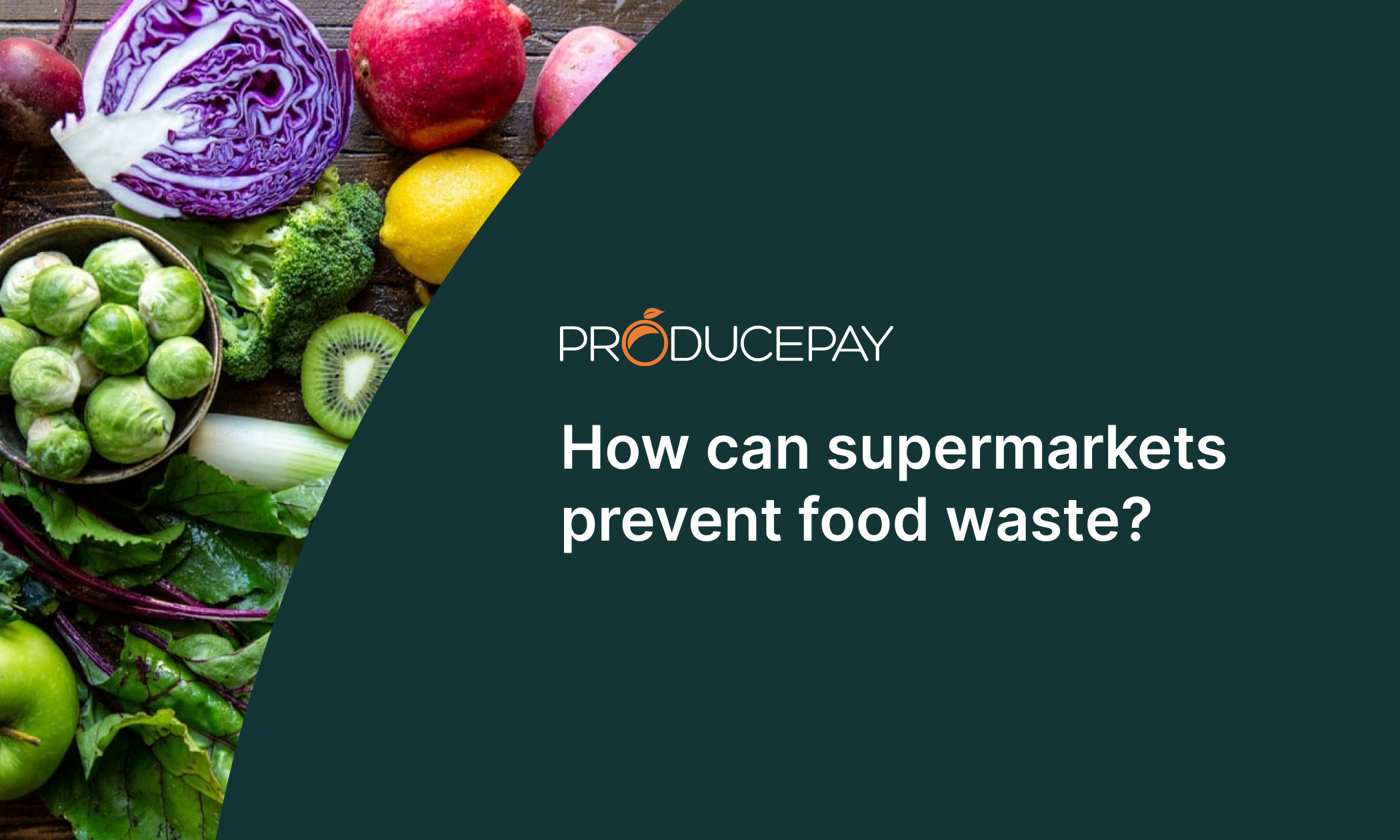
How can supermarkets prevent food waste?
Due to the short shelf life of fruits and vegetables, 40% of fresh produce is wasted post-harvest.
In addition to the economic loss, food waste also contributes to releasing carbon emissions into the atmosphere. According to figures from the Inter-American Development Bank, more than 127 million metric tons of food is wasted annually in Latin America and the Caribbean, and more than 66% of this waste occurs at the production, handling, and storage & distribution stages.
“Food waste is a significant sustainability issue,” says Manolo Reyes, Senior Vice President of Retail and Alternative Channels for ProducePay. “Producing 1 kilo of broccoli requires 400 liters of water, and 1 kilo of table grapes requires 900 liters, depending on the season and the region where it is produced. This means that we are not only wasting food, but also the natural and human resources that were utilized for its production.”
These three steps will help prevent food waste in supermarkets and create a more efficient, transparent and profitable supply chain for fresh produce.
1. Better demand planning and logistics requirements.
E-commerce has made it challenging for retailers to anticipate consumer demand for fruits and vegetables. While great efforts have been made to improve cold chains and refrigeration options, buyers can reduce fresh produce losses by correctly forecasting the number of shipments needed, their frequency and the optimal suppliers to fulfill them.
2. Choosing alternative options to petroleum-based plastics
Many supermarkets are attempting to eliminate the use of plastics, but according to Reyes,”there is nothing less sustainable than throwing food away.” The use of packaging extends the shelf life of fruits and vegetables in both stores and consumers’ homes. The widespread use of non-petroleum-based alternative options will reduce emissions more than eliminating all plastic.
3. Procure more sustainable products for consumers.
Consumers are increasingly demanding more transparency in the products they consume. According to a survey conducted by ProducePay, more than 50% of buyers (retailers, distributors, packers, among others) have sustainability objectives to meet. Therefore, ensuring that fruit and vegetable suppliers have the quality, freshness and reliability that allow for traceability and food safety should be a priority.
Sustainability actions by retailers and supermarkets impact the entire supply chain, benefit growers and consumers alike, and create more transparent and competitive markets. This is why ProducePay, the international produce trade platform, seeks to build a more sustainable and connected industry with farmers at the forefront of innovation.

